When Space Marines Retire, What Happens?
There is only conflict in the bleak darkness of the 41st millennium. However, that is no longer entirely accurate. These days, there are hundreds of Warhammer novels written, and a large number of the characters never see combat. There are plenty of warless novels, tales of Hive City detectives, and trips to the most sinister reaches of the galaxy available under the Warhammer Horror and Warhammer Crime brands. Of course, there are still a ton of books about war, but the subject is no longer limited to combat.
One could contend that this well-known quote is a metaphor. Detectives fight a never-ending battle with the organized crime in their communities, using their analytical skills and chess-like precision to conduct investigations. However, that’s not the sentence’s intended meaning, is it? Actually, that was a casual statement found in a wargaming rulebook. Decades after publishing, the author didn’t consider creating an inclusive message that would include the entirety of Warhammer writing; if they had, the message wouldn’t have the same impact. It doesn’t sound quite the same to say, “There are lots of things in the grim darkness of the 41st millennium, and some of them might be a bit war-esque.”
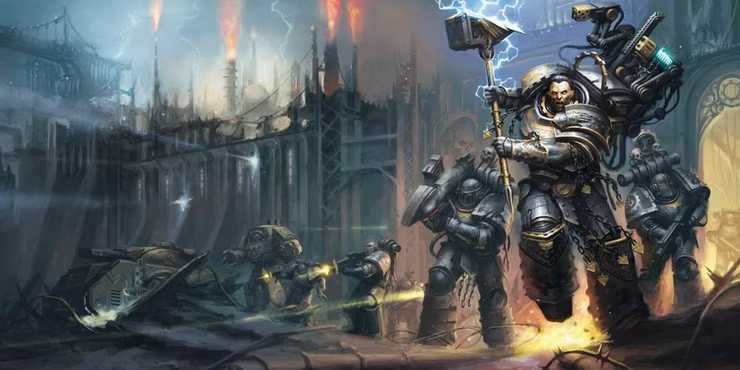
But what occurs when the conflict is over? Though it’s unlikely that the galaxy would ever experience peace, people might. Though they are considered the best supersoldiers by the Emperor, would the Space Marines of the Adeptus Astartes be able to enjoy a joyful retirement after fighting for centuries? Though it seems improbable, it has happened before.
Rufus Quintus, an Ultramarine Sergeant, sustained injuries during the events of the novel The Chapter’s Due. We get a peek at Quintus’ life after the war, even though the novel is primarily on Uriel Ventris’ wars. The veteran is too injured to be buried in a dreadnought, yet he is no longer able to battle. As a result, he is retired to Tarentus and given the responsibility of overseeing agriculture.
Quintus’s genetically altered body isn’t useful for manual labor; apparently, having prosthetic legs and lungs will keep you out of the fields. However, his enhanced senses enable him to identify anomalies in the atmosphere that could affect crop yields, demonstrating that his agonizing physical modifications have benefits beyond combat. But it takes his mind a little longer to acclimate.
He remarks to an advisor, “How quaint it is to be worried about soil acidity instead of the enemy’s disposition or the litanies of battle before strapping myself into a drop-pod.”
Quintus handles the changeover expertly. Though his persistent yearning for the battlefield, his ordered thinking and unwavering commitment to supporting Ultramar in every manner possible—including providing bread to the troops on the front lines—make him an appropriate governor. When you change careers, it’s always surprising what transferrable abilities you have, isn’t it?
According to Graham McNeill’s novel, Tarentus was an agri-world and a part of Ultramar’s breadbasket. It was one of the three worlds orbiting a shared center of gravity. “On Tarentus, billions of tons of food were produced, and many other Imperium worlds could only thrive through planetary-scale agriculture. Quintus was not at all comforted by the fact that his praefecture was only a cog in the machine; he was a man who yearned to fight for his Chapter. He was denied the reason he had been created, even if the greatest brains of antiquity had invented the science that had allowed him to transcend human limitations. Nevertheless, despite everything, he remained an Ultramarines warrior and a man who could be relied upon to carry out his duties and rule with diligence.
This sentence leads us to the conclusion that although Space Marines can retire, they won’t be pleased about it. Quintus still limps, indicating that his prosthetics did not fit his body properly, and the Astartes’ strict standards prevented him from participating in combat. Imagine losing your entire purpose for being here on Earth.
Nevertheless, I assume Quintus maintains Tarentus’ production lines operating with a merciless efficiency that the world has never experienced before. Though this is just speculation, having a Space Marine oversee the specifics of food production is perhaps the best form of government a planet could have. Furthermore, a super soldier’s 10-foot frame is likely to inspire respect among its subordinates.
Ultimately, Quintus’s wish came true, and Tarentus experienced battle. In the face of Daemonic intrusion, agri-worlds are quickly overwhelmed, and the veteran ends his retirement without even making a last stand—crucified on steel girders. Though it’s a depressing conclusion, perhaps there is just battle in the gloomy darkness of the 41st millennia.




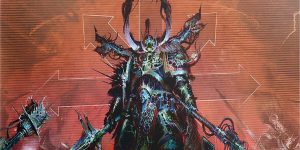
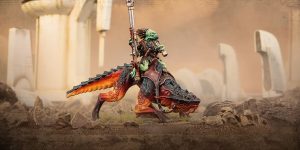
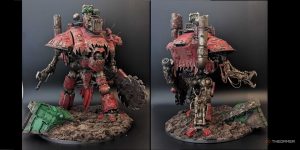
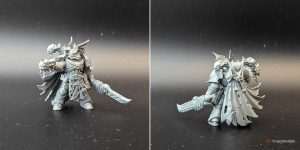
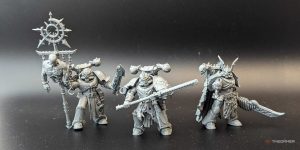
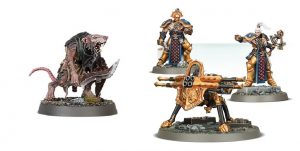
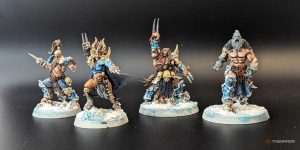

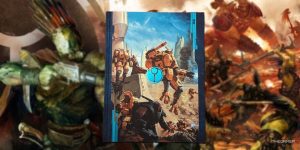
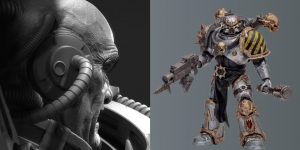
Post Comment